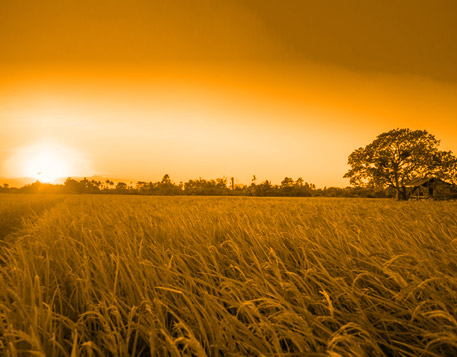
Why Stalin wants Centre to advance paddy procurement by a month
Early release of Cauvery water from Mettur dam on has hastened the crop cycle; this makes a case for Centre to adopt state-specific procurement policies

The early release of Cauvery water from Mettur dam on May 24, instead of the conventional June 12, has turned fruitful for the farmers of Delta districts in Tamil Nadu.
Bountiful rain in Karnataka and the early onset of the southwest monsoon led the Tamil Nadu government to open the sluice gates of Mettur dam at least two week ahead of usual. This was the first time since Independence that water was released in advance.
To reap the benefits, TN Chief Minister MK Stalin has written a letter to Prime Minister Narendra Modi, urging the Department of Agriculture and Farmer’s Welfare to advance the procurement of paddy by one month, i.e., to September 1, 2022. The conventional day for the Union government to procure the paddy usually falls on October 1 every year.
Also read: Early release of water from Mettur is historic, but benefit to farmers is under debate
Besides the early release of water from the reservoir, the desiltation of canals and distribution of quality seeds of high yielding paddy varieties and fertilisers, have made farmers plan their sowing. The prior announcement of the Union government regarding the minimum support price (MSP) for all kharif crops well before the commencement of sowing, has further given a boost to farming activities in the 10 Delta districts.
The situation has led to experts pointing out the need for the Centre to adopt state-specific procurement timelines, rather than apply a single timetable nationwide.
Increase in paddy yields
The CM said in the letter, “Normally, the paddy harvesting season in late September or early October would coincide with both southwest monsoon and northeast monsoon leading to yield loss or massive crop damage due to inundation during cyclones. But, this year, due to these proactive steps taken by the state government, farmers are confident of harvesting their kuruvai paddy commencing from the last week of August.”
Further, Stalin added that since Tamil Nadu has experienced a favourable agricultural season this year, if the Union government orders that paddy should be procured from September, that would immensely help farmers to a fetch a remunerative price and realise the benefit of increased MSP for the kharif marketing season.
The revised MSP for paddy in 2021-2022 is ₹1,940 for common variety and ₹1,960 for Grade ‘A’ variety.
It is interesting to note that in recent years, the state has increased its rice contribution to the Central pool from 2.6 per cent to 5 per cent, according to the Food Corporation of India data. The farmers say that the yield during the kharif marketing season (October 1, 2021-September 30, 2022) was also good. According to the state agriculture department data, about 118 lakh tonnes of paddy was produced in 2021-2022, which is the second highest production in the last 11 years. The policy note of the state agriculture department attributes the results to the increased acreage of cultivation.
‘Need state specific procurement policy’
The state has fixed a target of increasing the paddy production to 126 lakh tonnes for 2022-23. According to farmers, the target is achievable since the state and Union governments have come forward to design a state specific paddy procurement policy.
Also read: Tangedco needs to hike own thermal capacity to cater to new investors in TN
PR Pandian, general secretary, Federation of Tamil Nadu Farmers Association said, “In India, the paddy procurement is done directly through FCI in some states and in states like Tamil Nadu, the state government acts as an agent of the Union government and procures paddy. As per the union government policy, the paddy is procured from October. At that time, Tamil Nadu would have the northeast monsoon and other parts of India don’t. Due to heavy rains and floods, the moisture content in the rice would be high and hence, the state government on behalf of the Centre hesitates to procure the paddy. This in turn affects the farmers who are unable to sell their produce.”
He added that special permission is required from the Union government if the state government wanted to procure the paddy beyond the prescribed level of moisture content.
“Every year to obtain the special permission, it takes at least one month and that delay in procurement affects the produce because the moisture content further escalates. So, though the state’s initiative of writing a letter to the Union government to procure paddy is a welcome move, it should also obtain the special permission to procure the paddy with higher moisture content,” Pandian added.


